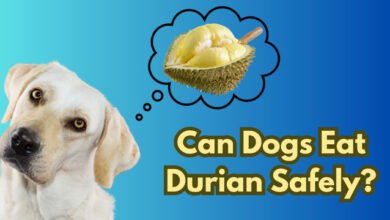Provolone Cheese: Can It Be Part of Your Dog’s Diet?

Hey there, fellow dog enthusiasts! If you’re like me, you probably enjoy sharing little bites of your favorite snacks with your four-legged friend. But have you ever stopped mid-snack and wondered, “Can dogs have provolone cheese?” It’s a question that comes up more often than you’d think, especially when those puppy eyes are locked onto your cheesy delight. In this article, we’ll dive into the world of cheese and dogs, exploring whether provolone cheese is a safe and tasty treat for your canine companion. So, let’s dig in and find out if your pup can enjoy a nibble of this savory snack! So now let’s explore –can dogs have Provolone cheese?
Nutritional Profile of Provolone Cheese
Provolone cheese, known for its distinct flavor and creamy texture, offers a range of nutritional components that can impact a dog’s diet. This section explores the key elements of Provolone cheese, including its protein content and benefits for dogs, fat levels and potential implications, sodium content and health considerations, and lactose presence and its impact on dogs.
Protein Content and Its Benefits for Dogs
- Rich Source of Protein: Provolone cheese is a valuable source of protein, providing essential amino acids necessary for muscle maintenance, tissue repair, and overall bodily functions in dogs.
- Muscle Development: Protein supports muscle growth and development, aiding in strength and vitality throughout a dog’s life.
- Satiety: Including protein-rich foods like Provolone cheese in a dog’s diet can promote feelings of fullness and satisfaction, helping to manage appetite and weight.
Fat Levels and Potential Implications
- Moderate to High Fat Content: Provolone cheese contains moderate to high levels of fat, contributing to its creamy texture and rich flavor.
- Obesity Risks: Excessive consumption of high-fat foods like Provolone cheese can lead to weight gain and obesity in dogs. It’s important to offer Provolone cheese in moderation and to monitor a dog’s overall fat intake to maintain a healthy weight.
Sodium Content and Health Considerations
- Significant Sodium Levels: Provolone cheese contains notable amounts of sodium, which acts as a preservative and flavor enhancer.
- Hypertension Risks: High sodium intake can lead to hypertension (high blood pressure) in dogs, increasing the risk of heart disease and kidney damage. It’s crucial to monitor the sodium content of your dog’s diet and limit their intake of salty foods like Provolone cheese.
Lactose Presence and Its Impact on Dogs
- Presence of Lactose: Provolone cheese contains lactose, a type of sugar found in milk and dairy products.
- Lactose Intolerance: Many dogs lack the enzyme lactase needed to properly digest lactose, leading to gastrointestinal issues such as diarrhea, gas, and bloating when consuming dairy products like Provolone cheese.
- Sensitive Stomachs: Dogs with lactose intolerance or sensitive stomachs may experience digestive discomfort after consuming Provolone cheese. It’s important to monitor for any adverse reactions and adjust their diet accordingly.
Understanding the nutritional profile of Provolone cheese is essential for making informed decisions about its inclusion in a dog’s diet. While it can offer some nutritional benefits, it’s important to balance these with potential risks and to offer Provolone cheese in moderation as part of a balanced diet.
Benefits of Provolone Cheese for Dogs
Provolone cheese, with its rich flavor and creamy texture, can offer several benefits when included as part of a dog’s diet. This section explores the key advantages, including its role as a high-quality protein source, provision of essential vitamins and minerals, high palatability and enjoyment for dogs, and potential dental health benefits from chewing.
High-Quality Protein Source
- Muscle Maintenance: Provolone cheese serves as a valuable source of high-quality protein, supplying essential amino acids necessary for muscle maintenance and repair in dogs.
- Tissue Repair: Protein supports tissue repair processes, aiding in the recovery from injuries or physical exertion.
- Energy Metabolism: Protein contributes to the overall energy metabolism of dogs, ensuring optimal function of bodily processes.
Essential Vitamins and Minerals
- Calcium: Provolone cheese is rich in calcium, a crucial mineral for maintaining strong bones and teeth in dogs. Adequate calcium intake is essential for skeletal health and proper growth, especially in young puppies and senior dogs.
- Vitamin A: This vitamin is essential for supporting healthy vision, immune function, and skin health in dogs. Provolone cheese provides a natural source of vitamin A, contributing to overall well-being.
- Other Essential Nutrients: Provolone cheese contains various other vitamins and minerals, including phosphorus, vitamin B12, and zinc, which play vital roles in maintaining overall health and vitality in dogs.
High Palatability and Enjoyment for Dogs
- Appetite Stimulation: Provolone cheese has a rich flavor and enticing aroma that can enhance the palatability of meals or treats, encouraging dogs to eat and enjoy their food.
- Training Aid: The appealing taste of Provolone cheese makes it an effective training aid, allowing owners to reinforce positive behaviors and facilitate training sessions with their dogs.
Potential Dental Health Benefits from Chewing
- Chewing Action: Chewing on small pieces of Provolone cheese can help promote dental health in dogs by stimulating saliva production and reducing plaque buildup on teeth.
- Texture: The texture of Provolone cheese encourages dogs to chew thoroughly, which can help remove food particles and debris from their teeth, promoting oral hygiene.
While Provolone cheese can offer several benefits for dogs, it’s essential to offer it in moderation and as part of a balanced diet. Consultation with a veterinarian can ensure that Provolone cheese is suitable for your dog’s specific dietary needs and health conditions.
Risks and Concerns of Feeding Provolone Cheese to Dogs
While Provolone cheese can be a tasty treat for dogs, it’s essential to be aware of the potential risks and concerns associated with its consumption. This section explores the key concerns, including its high fat content and obesity risk, elevated sodium levels and potential health issues, lactose intolerance and digestive problems, and allergic reactions or sensitivities in some dogs.
High Fat Content and Obesity Risk
- Caloric Density: Provolone cheese contains significant levels of fat, contributing to its creamy texture and rich flavor. Excessive consumption of high-fat foods like Provolone cheese can lead to weight gain and obesity in dogs.
- Obesity Risks: Obesity in dogs can increase the risk of various health issues, including joint problems, heart disease, and diabetes. It’s important to offer Provolone cheese in moderation and to monitor a dog’s overall caloric intake to maintain a healthy weight.
Elevated Sodium Levels and Potential Health Issues
- Salt Content: Provolone cheese contains notable amounts of sodium, which acts as a preservative and flavor enhancer. High sodium intake can lead to health issues in dogs, including hypertension, kidney damage, and dehydration.
- Health Risks: Dogs with pre-existing health conditions, such as heart disease or kidney problems, may be particularly susceptible to the adverse effects of high sodium levels. It’s crucial to monitor the sodium content of your dog’s diet and limit their intake of salty foods like Provolone cheese.
Lactose Intolerance and Digestive Problems
- Presence of Lactose: Provolone cheese contains lactose, a type of sugar found in milk and dairy products.
- Lactose Intolerance: Many dogs lack the enzyme lactase needed to properly digest lactose, leading to gastrointestinal issues such as diarrhea, gas, and bloating when consuming dairy products like Provolone cheese.
- Sensitive Stomachs: Dogs with lactose intolerance or sensitive stomachs may experience digestive discomfort after consuming Provolone cheese. It’s important to monitor for any adverse reactions and adjust their diet accordingly.
Allergic Reactions or Sensitivities in Some Dogs
- Protein Allergens: Some dogs may be allergic to the proteins found in dairy products like Provolone cheese.
- Allergic Symptoms: Allergic reactions can manifest as itching, skin rashes, ear infections, or gastrointestinal distress. If your dog exhibits signs of allergic reactions after consuming Provolone cheese, consult with a veterinarian for guidance on appropriate dietary adjustments.
Understanding these risks and concerns of feeding Provolone cheese to dogs is essential for making informed decisions about their diet and overall health. By offering Provolone cheese in moderation and monitoring for any adverse reactions, you can help ensure the well-being of your furry friend.
Guidelines for Incorporating Provolone Cheese into Your Dog’s Diet
Provolone cheese can be a delicious addition to your dog’s diet, but it’s essential to introduce it responsibly to ensure their health and well-being. This section outlines guidelines for safely incorporating Provolone cheese into your dog’s diet, including starting with small portions and monitoring reactions, choosing low-fat or reduced-sodium varieties, using Provolone cheese as an occasional treat, not a staple, and consulting your veterinarian for personalized advice.
Start with Small Portions and Monitor Reactions
- Slow Introduction: Begin by offering your dog a small amount of Provolone cheese to gauge their tolerance and reaction. This helps prevent any potential digestive issues and allows you to observe how your dog responds to the new treat.
- Observation: Pay close attention to your dog’s behavior and any changes in their stool or overall well-being after consuming Provolone cheese. If they show no adverse reactions, you can gradually increase the portion size over time.
Choose Low-Fat or Reduced-Sodium Varieties
- Healthier Options: Opt for low-fat or reduced-sodium varieties of Provolone cheese to minimize the potential health risks associated with high-fat and sodium content.
- Nutritional Balance: These healthier options can help ensure that your dog enjoys the treat without negatively impacting their overall dietary balance.
Use Provolone Cheese as an Occasional Treat, Not a Staple
- Moderation is Key: Provolone cheese should be given as an occasional treat rather than a regular part of your dog’s diet. This helps prevent excessive intake of calories, fat, and sodium.
- Portion Control: Offer Provolone cheese in small, manageable portions, and avoid feeding it too frequently to prevent overconsumption.
Consult Your Veterinarian for Personalized Advice
- Individualized Recommendations: Every dog is unique, and their dietary needs may vary based on factors such as age, breed, size, and health status. Consult your veterinarian for personalized advice on incorporating Provolone cheese into your dog’s diet.
- Health Assessment: Your veterinarian can assess your dog’s overall health and provide recommendations tailored to their specific needs, ensuring that Provolone cheese is a safe and suitable addition to their diet.
By following these guidelines, you can safely incorporate Provolone cheese into your dog’s diet, allowing them to enjoy this tasty treat without compromising their health. Always remember that moderation and careful monitoring are essential to ensure that any new food is a positive addition to your pet’s diet.
Alternative Dog-Friendly Cheese Options
While Provolone cheese can be a tasty treat for dogs, there are several alternative cheeses that may be more suitable and beneficial for canine consumption. This section explores some dog-friendly cheese options, highlighting their benefits and considerations.
Cottage Cheese: Low-Fat, High-Protein Option
- Nutritional Benefits: Cottage cheese is a nutritious option for dogs, offering a low-fat, high-protein alternative to other cheeses.
- Muscle Maintenance: The high protein content in cottage cheese supports muscle maintenance and repair in dogs, making it an ideal choice for active or growing pups.
- Calcium Source: Cottage cheese is also a good source of calcium, promoting strong bones and teeth in dogs. It can be particularly beneficial for puppies and senior dogs who may have increased calcium needs.
Mozzarella: Low-Fat and Easily Digestible
- Digestibility: Mozzarella cheese is known for its mild flavor and soft texture, making it easily digestible for dogs.
- Low-Fat Option: Mozzarella cheese is lower in fat compared to some other cheeses, making it a suitable choice for dogs needing to watch their fat intake.
- Protein Source: While lower in fat, Mozzarella cheese still provides a source of protein for dogs, supporting their overall health and vitality.
Cheddar: Popular but Should Be Used in Moderation
- Popularity: Cheddar cheese is a common household cheese enjoyed by many dogs due to its sharp flavor and firm texture.
- Moderation Advice: However, cheddar cheese should be given sparingly to dogs due to its higher fat content. While it can be a tasty occasional treat, overconsumption can lead to weight gain and other health issues.
Swiss Cheese: Low in Lactose, Making It Easier to Digest
- Lactose Content: Swiss cheese contains lower levels of lactose compared to many other cheeses, making it a suitable option for dogs with lactose intolerance.
- Gentle on Digestion: Its lower lactose content reduces the likelihood of digestive upset, making it a safer choice for dogs with sensitive stomachs or digestive sensitivities.
These alternative cheese options can be great additions to your dog’s diet, provided they are given in moderation and are compatible with your dog’s dietary needs. Always consult with a veterinarian before introducing new foods to ensure they are appropriate for your specific pet.




